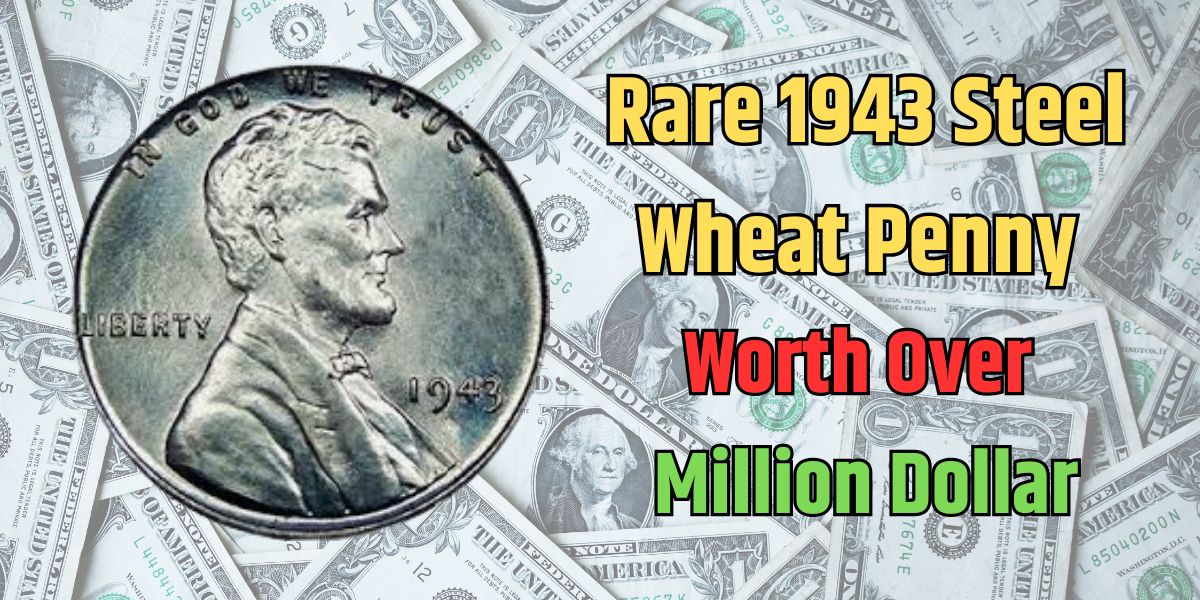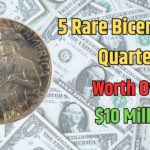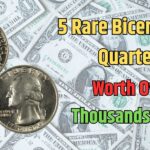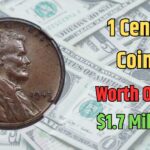During World War II, the U.S. Mint made a bold decision to conserve copper by producing pennies from zinc-coated steel. The result was the 1943 Steel Wheat Penny, a striking silver-gray coin unlike the copper versions traditionally used. While over a billion were minted, certain rare variations and minting errors have made a few of these pennies extraordinarily valuable, with one fetching as much as $1.7 million. Below, we examine the rarest 1943 Steel Wheat Pennies, their fascinating backstories, and tips on identifying these numismatic treasures.
Why Were 1943 Steel Pennies Minted?
In 1943, copper was needed for the war effort, particularly for ammunition and electrical wiring. The U.S. Mint temporarily replaced copper with zinc-coated steel to produce pennies. However, the steel pennies presented challenges, such as rusting easily and being confused with dimes due to their color. These issues prompted the Mint to return to copper in 1944. Despite their massive production across the Philadelphia, Denver, and San Francisco mints, rare variants of the 1943 Steel Penny have become prized among collectors.
The Top 7 Rarest 1943 Steel Wheat Pennies
While most 1943 Steel Pennies are common and worth little, some rare examples command extraordinary prices due to unique characteristics and minting errors. Here are the top seven:
1. 1943 Bronze Penny
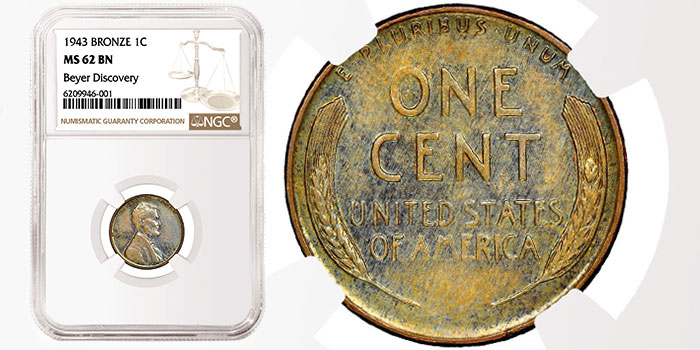
- Value: Up to $1.7 million
- Mint Marks: Philadelphia, Denver, San Francisco
- Details: Accidentally struck on leftover bronze planchets instead of steel, fewer than 20 are known to exist. These coins are among the rarest and most valuable U.S. pennies ever discovered.
2. 1943-S Steel Penny (MS68 Grade)
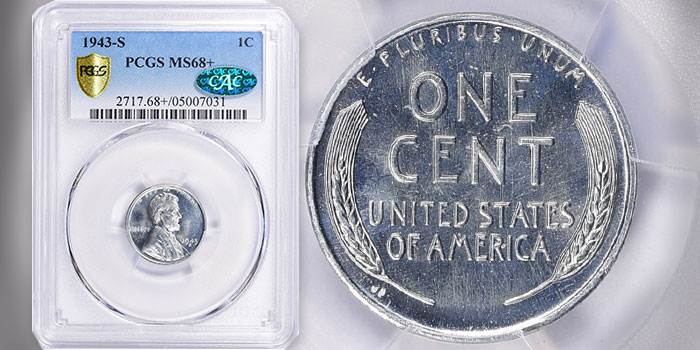
- Sold for: $19,200 (2021)
- Mint Mark: San Francisco
- Details: This nearly flawless example achieved an MS68 grade, making it highly desirable. Its pristine condition and “S” mint mark enhance its rarity.
3. 1943-D/D Repunched Mint Mark

- Sold for: $18,800 (2012)
- Mint Mark: Denver
- Details: Known for its distinctive “D” mint mark struck twice, this error adds significant value. High-grade specimens like this MS67 example are collector favorites.
4. 1943-S Double Die Obverse (DDO)

- Sold for: $9,500 (2004)
- Mint Mark: San Francisco
- Details: A minting error caused the obverse design to appear doubled. Well-preserved coins, such as this MS66 example, are highly sought after.
5. 1943 Steel Penny Struck on Dime Planchet

- Sold for: $9,200 (2009)
- Mint Mark: San Francisco
- Details: This error resulted from striking a penny on a dime-sized planchet, making the coin smaller than standard pennies. Its unique composition and rarity make it a standout.
6. 1943-D Steel Penny (MS68)

- Sold for: $6,600 (2019)
- Mint Mark: Denver
- Details: This Denver-minted steel penny in nearly flawless MS68 condition fetched a premium at auction.
7. 1943-S Steel Penny (MS68)

- Sold for: $5,400 (2015)
- Mint Mark: San Francisco
- Details: Another MS68 example from San Francisco, valued for its combination of condition and origin.
Table: Summary of Rare 1943 Steel Wheat Pennies
| Penny Type | Value | Mint Mark | Sale Date | Condition/Grade | Unique Feature |
|---|---|---|---|---|---|
| 1943 Bronze Penny | $1.7 million | P, D, S | 2010 | MS62 | Struck on leftover bronze planchet |
| 1943-S Steel Penny (MS68) | $19,200 | S | 2021 | MS68+ | Nearly flawless high-grade example |
| 1943-D/D Repunched Mint Mark | $18,800 | D | 2012 | MS67 | Double-struck “D” mint mark |
| 1943-S Double Die Obverse | $9,500 | S | 2004 | MS66 | Doubled design on obverse |
| 1943 Steel Penny on Dime Planchet | $9,200 | S | 2009 | AU53 | Struck on dime-sized planchet |
| 1943-D Steel Penny (MS68) | $6,600 | D | 2019 | MS68 | High-grade Denver-minted coin |
| 1943-S Steel Penny (MS68) | $5,400 | S | 2015 | MS68 | High-grade San Francisco Mint example |
Identifying a Rare 1943 Steel Wheat Penny
If you suspect you’ve found a valuable 1943 steel penny, follow these steps to verify its rarity:
- Check the Mint Mark:
Look below the year “1943” for a “D” (Denver) or “S” (San Francisco). Coins without a mint mark were minted in Philadelphia. - Magnet Test:
Steel pennies will stick to a magnet, while bronze pennies will not. This simple test can confirm the coin’s composition. - Inspect for Errors:
Look for unique features like double die strikes, repunched mint marks, or incorrect planchet errors, which significantly increase value. - Evaluate Condition:
Pristine coins with minimal wear and sharp details fetch higher prices. Professional grading services can help assess your coin’s condition.
FAQs
Why is the 1943 bronze penny so valuable?
It was an accidental creation, struck on leftover bronze planchets instead of steel. With fewer than 20 known examples, its rarity drives its immense value.
Are all 1943 steel pennies valuable?
No, most 1943 steel pennies are common and worth little. Only coins with rare minting errors or in exceptional condition hold significant value.
How can I tell if my 1943 penny is made of bronze or steel?
Use a magnet. Steel pennies will stick, while bronze pennies will not.
What should I do if I find a rare 1943 penny?
Handle it carefully to prevent damage and consider having it professionally graded to determine its authenticity and market value.
What is a double die error?
This occurs when a coin’s design is struck twice, creating a visible doubled image. It’s a rare and desirable minting mistake.
